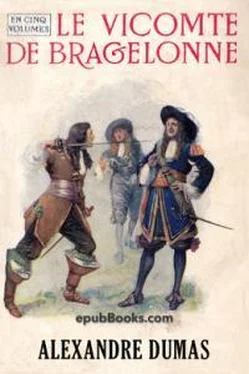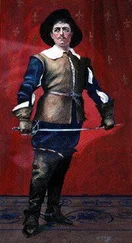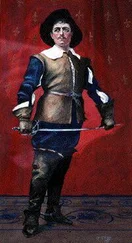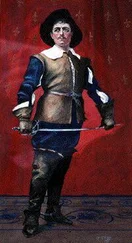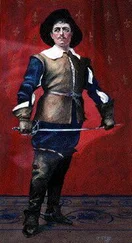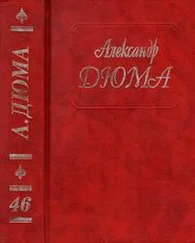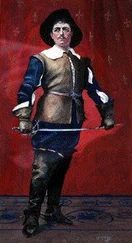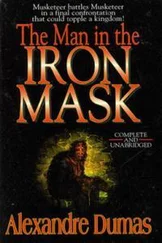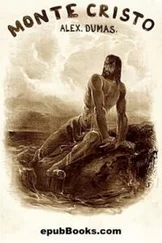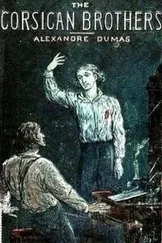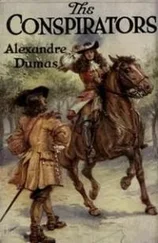And at these words the girl pushed Raoul out of the room by the shoulders. He glided swiftly down to the porch, regained his horse, mounted, and set off as if he had had Monsieur’s guards at his heels.
Chapter IV.
Father and Son.
Raoul followed the well–known road, so dear to his memory, which led from Blois to the residence of the Comte de la Fere.
The reader will dispense with a second description of that habitation: he, perhaps, has been with us there before, and knows it. Only, since our last journey thither, the walls had taken on a grayer tint, and the brick–work assumed a more harmonious copper tone; the trees had grown, and many that then only stretched their slender branches along the tops of the hedges, now, bushy, strong, and luxuriant, cast around, beneath boughs swollen with sap, great shadows of blossoms or fruit for the benefit of the traveler.
Raoul perceived, from a distance, the two little turrets, the dove–cote in the elms, and the flights of pigeons, which wheeled incessantly around that brick cone, seemingly without power to quit it, like the sweet memories which hover round a spirit at peace.
As he approached, he heard the noise of the pulleys which grated under the weight of the heavy pails; he also fancied he heard the melancholy moaning of the water which falls back again into the wells—a sad, funereal, solemn sound, which strikes the ear of the child and the poet—both dreamers—which the English call splash; Arabian poets gasgachau; and which we Frenchmen, who would be poets, can only translate by a paraphrase—the noise of water falling into water.
It was more than a year since Raoul had been to visit his father. He had passed the whole time in the household of M. le Prince. In fact, after all the commotions of the Fronde, of the early period of which we formerly attempted to give a sketch, Louis de Conde had made a public, solemn and frank reconciliation with the court. During all the time that the rupture between the king and the prince had lasted, the prince, who had long entertained a great regard for Bragelonne, had in vain offered him advantages of the most dazzling kind for a young man. The Comte de la Fere, still faithful to his principles of loyalty, and royalty, one day developed before his son in the vaults of Saint Denis,—the Comte de la Fere, in the name of his son, had always declined them. Moreover, instead of following M. de Conde in his rebellion, the vicomte had followed M. de Turenne, fighting for the king. Then when M. de Turenne, in his turn, had appeared to abandon the royal cause, he had quitted M. de Turenne, as he had quitted M. de Conde. It resulted from this invariable line of conduct, that, as Conde and Turenne had never been conquerors of each other but under the standard of the king, Raoul, however young, had ten victories inscribed on his list of services, and not one defeat from which his bravery or conscience had to suffer.
Raoul, therefore, had, in compliance with the wish of his father, served obstinately and passively the fortunes of Louis XIV., in spite of the tergiversations which were endemic, and, it might be said, inevitable, at that period.
M. de Conde; on being restored to favor, had at once availed himself of all the privileges of the amnesty to ask for many things back again which had been granted to him before, and among others, Raoul. M. de la Fere, with his invariable good sense, had immediately sent him again to the prince.
A year, then, had passed away since the separation of the father and son; a few letters had softened, but not removed, the pain of absence. We have seen that Raoul had left at Blois another love in addition to filial love. But let us do him this justice—if it had not been for chance and Mademoiselle de Montalais, two great temptations, Raoul, after delivering his message, would have galloped off towards his father’s house, turning his head round, perhaps, but without stopping for a single instant, even if Louise had held out her arms to him.
So the first part of the journey was given by Raoul to regretting the past which he had been forced to quit so quickly, that is to say, his lady–love; and the other part to the friend he was about to join, so much too slowly for his wishes.
Raoul found the garden–gate open, and rode straight in, without regarding the long arms, raised in anger, of an old man dressed in a jacket of violet–colored wool, and a large cap of faded velvet.
The old man, who was weeding with his hands a bed of dwarf roses and arguerites, was indignant at seeing a horse thus traversing his sanded and nicely–raked walks. He even ventured a vigorous "Humph!" which made the cavalier turn round. Then there was a change of scene; for no sooner had he caught sight of Raoul’s face, than the old man sprang up and set off in the direction of the house, amidst interrupted growlings, which appeared to be paroxysms of wild delight.
When arrived at the stables, Raoul gave his horse to a little lackey, and sprang up the perron with an ardor that would have delighted the heart of his father.
He crossed the ante–chamber, the dining–room, and the salon, without meeting any one; at length, on reaching the door of M. de la Fere’s apartment, he rapped impatiently, and entered almost without waiting for the word "Enter!" which was vouchsafed him by a voice at once sweet and serious. The comte was seated at a table covered with papers and books; he was still the noble, handsome gentleman of former days, but time had given to this nobleness and beauty a more solemn and distinct character. A brow white and void of wrinkles, beneath his long hair, now more white than black; an eye piercing and mild, under the lids of a young man; his mustache, fine but slightly grizzled, waved over lips of a pure and delicate model, as if they had never been curled by mortal passions; a form straight and supple; an irreproachable but thin hand—this was what remained of the illustrious gentleman whom so many illustrious mouths had praised under the name of Athos. He was engaged in correcting the pages of a manuscript book, entirely filled by his own hand.
Raoul seized his father by the shoulders, by the neck, as he could, and embraced him so tenderly and so rapidly, that the comte had neither strength nor time to disengage himself, or to overcome his paternal emotions.
"What! you here, Raoul—you! Is it possible?" said he.
"Oh, monsieur, monsieur, what joy to see you once again!"
"But you don’t answer me, vicomte. Have you leave of absence, or has some misfortune happened at Paris?
"Thank God, monsieur," replied Raoul, calming himself by degrees, "nothing has happened but what is fortunate. The king is going to be married, as I had the honor of informing you in my last letter, and, on his way to Spain, he will pass through Blois."
"To pay a visit to Monsieur?"
"Yes, monsieur le comte. So, fearing to find him unprepared, or wishing to be particularly polite to him, monsieur le prince sent me forward to have the lodgings ready."
"You have seen Monsieur?" asked the comte, eagerly.
"I have had that honor."
"At the castle?"
"Yes, monsieur," replied Raoul, casting down his eyes, because, no doubt, he had felt there was something more than curiosity in the comte’s inquiries.
"Ah, indeed, vicomte? Accept my compliments thereupon."
Raoul bowed.
"But you have seen some one else at Blois?"
"Monsieur, I saw her royal highness, Madame."
"That’s very well: but it is not Madame that I mean."
Raoul colored deeply, but made no reply.
"You do not appear to understand me, monsieur le vicomte," persisted M. de la Fere, without accenting his words more strongly, but with a rather severer look.
"I understand you quite plainly, monsieur," replied Raoul, "and if I hesitate a little in my reply, you are well assured I am not seeking for a falsehood."
Читать дальше
